How To Stop Facebook Spam Bots
Recently, one of the most common complaints about social media platforms has been an overabundance of spam bots. These bots are particularly bothersome on Facebook, as they send unwanted messages that clog your inbox, harass users, and compromise security. Around 4% of Facebook's monthly active users were fake accounts in the first quarter of 2024.
In this article, we'll be talking about what Facebook spam bots are and how you can prevent them from commenting on and messaging your accounts.
What Are Spam Bots?
A bot is a software program that's designed to repeat automated tasks and imitate human behavior. Spam bots are automated programs that share spam content online, often on social media sites. Spam bots work by creating accounts and sending unwanted messages that are often designed to spread malware or trick users.
Beyond sending out spam messages or creating spam posts, these bots may also interact with actual users on social media platforms. They may like posts, publish spam comments, and share other users' content with their followers.
How to Spot a Spam Bot on Facebook
Social media spam bots generally mimic real people, and they can be convincing, especially if you don't know what to look out for. Here are some tips for differentiating Facebook spam bots from actual Facebook users.
Generic or Promotional Comments
The content that spam bots post usually lacks personality and unique details. Their comments also tend to include promotions or requests for engagement. Some examples of common promotional comments posted by Facebook spam bots include:
- "Love your content! Contact me at …"
- "Big fan of what you're doing! Check your DMs so you don't miss out on a great deal!"
- "Send me a message to learn about an exciting opportunity!"
Little to No Details on Their Profile
Whenever you suspect that an account is a spam bot, click on the profile.
Since they aren't real people, bots often have unfinished profiles with images taken from other accounts or online pictures. The account is most likely a bot if it has little to no personal details on its profile, has a suspicious profile picture, and doesn't have a reliable friends list.
Check the account's bio for personal details or unique touches. If it's blank or contains only generic promotions, the account is probably a spam bot.
Unusual Actions Online
Large following, linking, or commenting spikes can indicate that an account is a bot. Real people are generally more consistent with their actions online and won't have extreme spikes of unusual activity.
Following Ratios
You should also check any suspicious account's ratio of followers to the number of accounts they follow. An account that follows many people but doesn't have many followers may be a bot.
Promotional Posts
When a seemingly personal social media account posts a lot of promotional content, specifically content that directs users to click on various links, that's a sign of a bot account. Just keep in mind that it isn't suspicious for business accounts to post promotional content, since that's their purpose.
How to Stop Spam Bots on Your Business's Facebook Account
If you have bad bots on your business's Facebook account, you can fight them. Follow these steps to filter out messages from spam bots on your profile:
- Log into your business's Facebook account and go to your Messenger inbox.
- Click on the "Automations" Tab. If you can't find this tab, you can search for "automations" in your account.

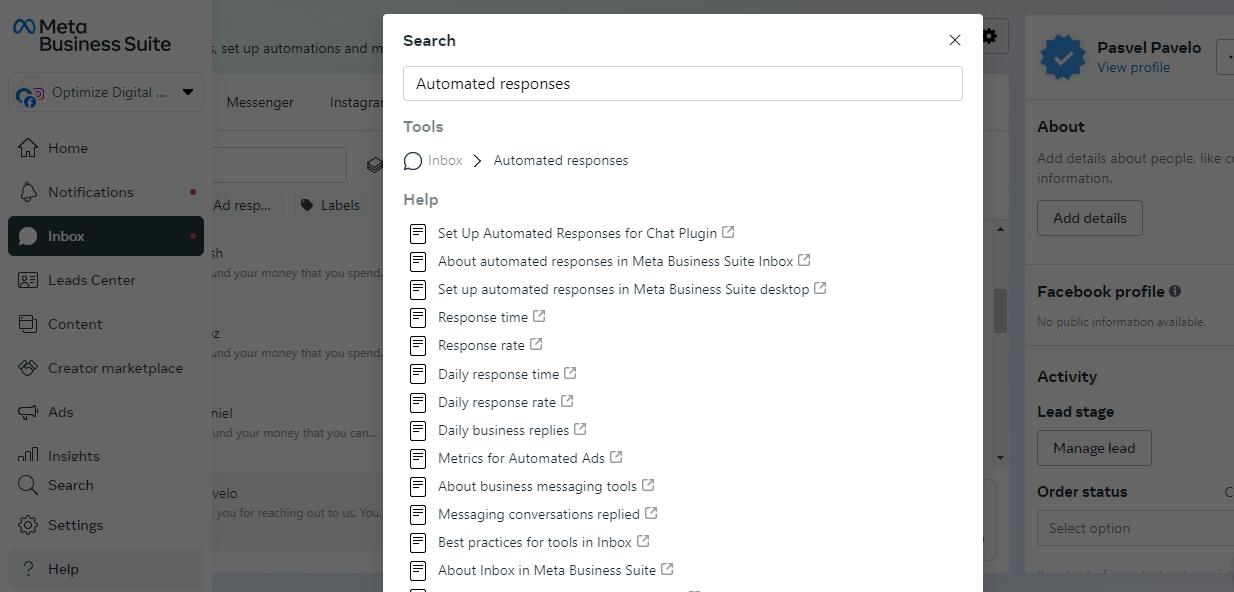
- Click "Create Automation," and then click "Start from scratch."
- From there, you can name your automated message, pick what channel you would like it to apply to, and pick when the automation goes off.
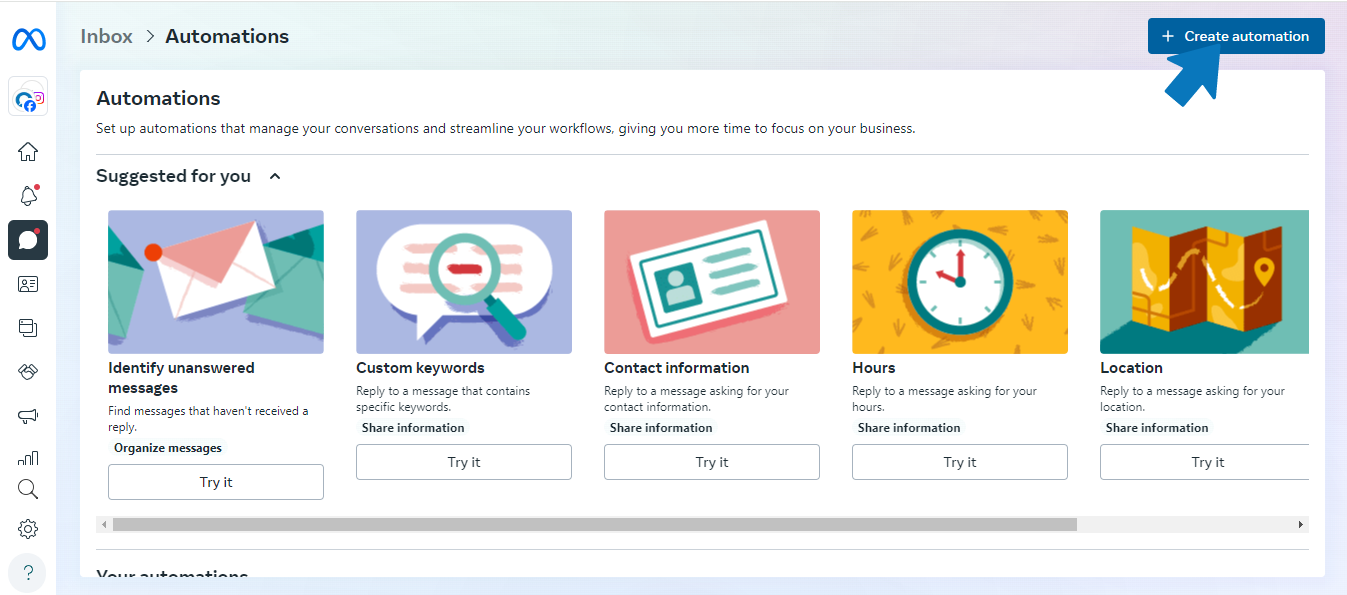
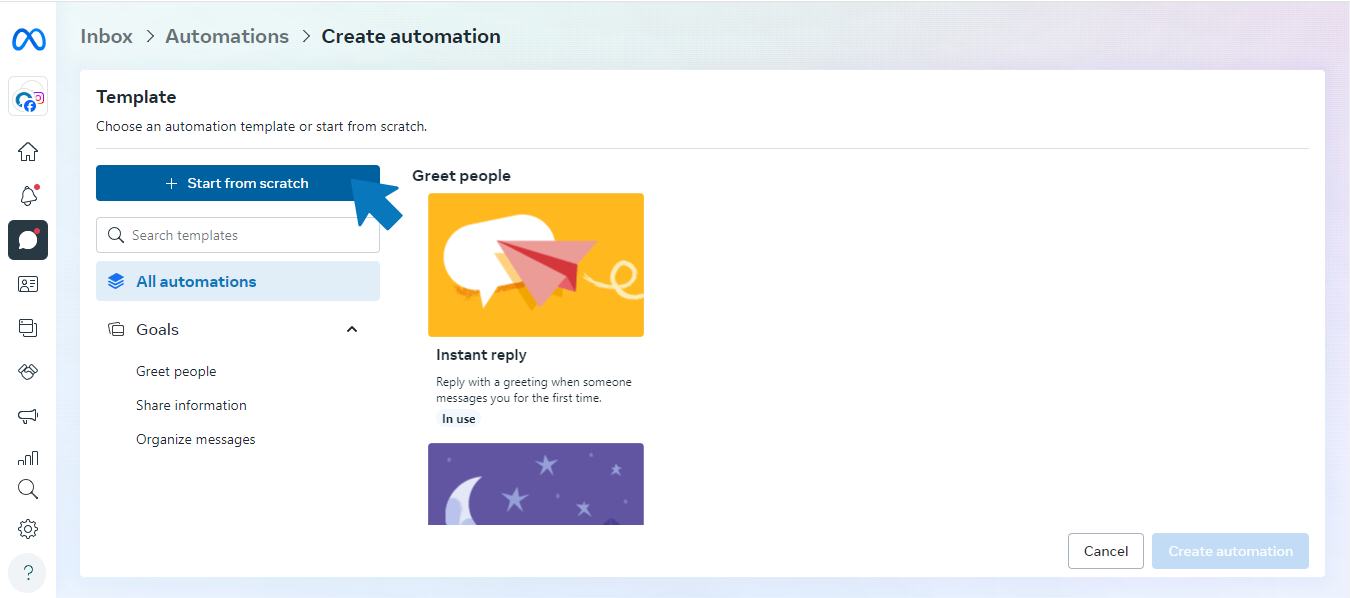
- Select "New Message Received" for when the automation should go off.
- Click "Add condition" under "What happens."
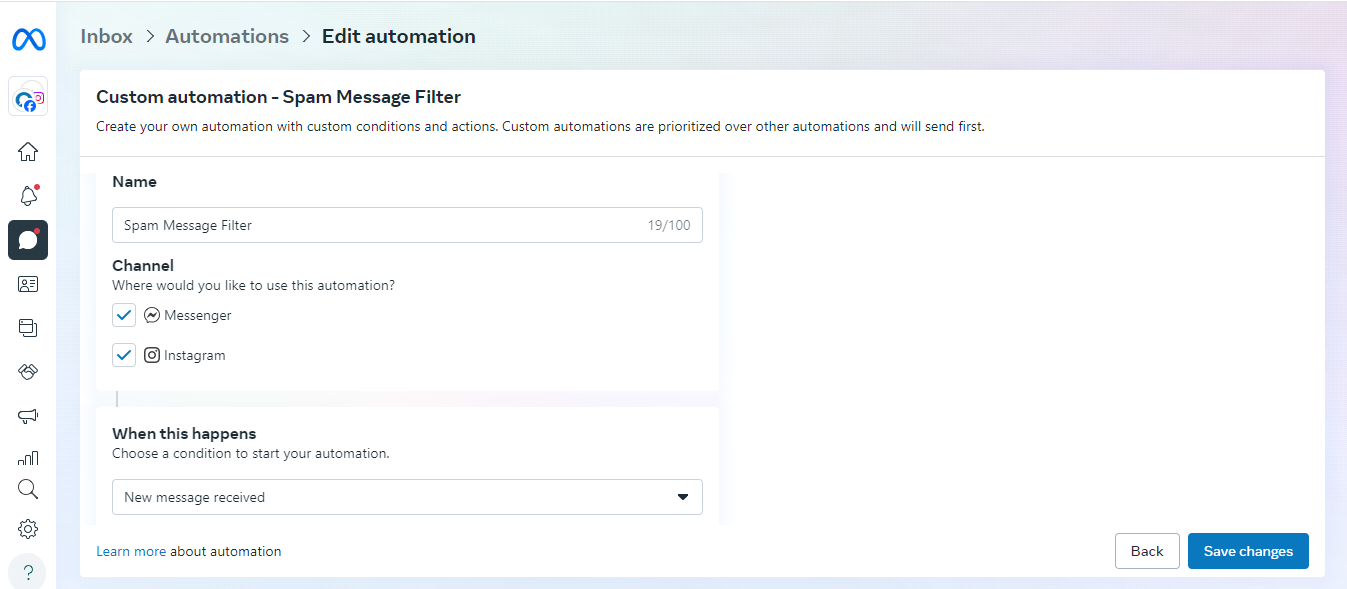
- Click "Keywords" and continue filling in the keywords that tend to appear in your spam messages on Facebook. Some examples of common keywords from bots sending spam messages include "terms of service team," "account will be deactivated," "dear admin," "last warning," and "Meta support."
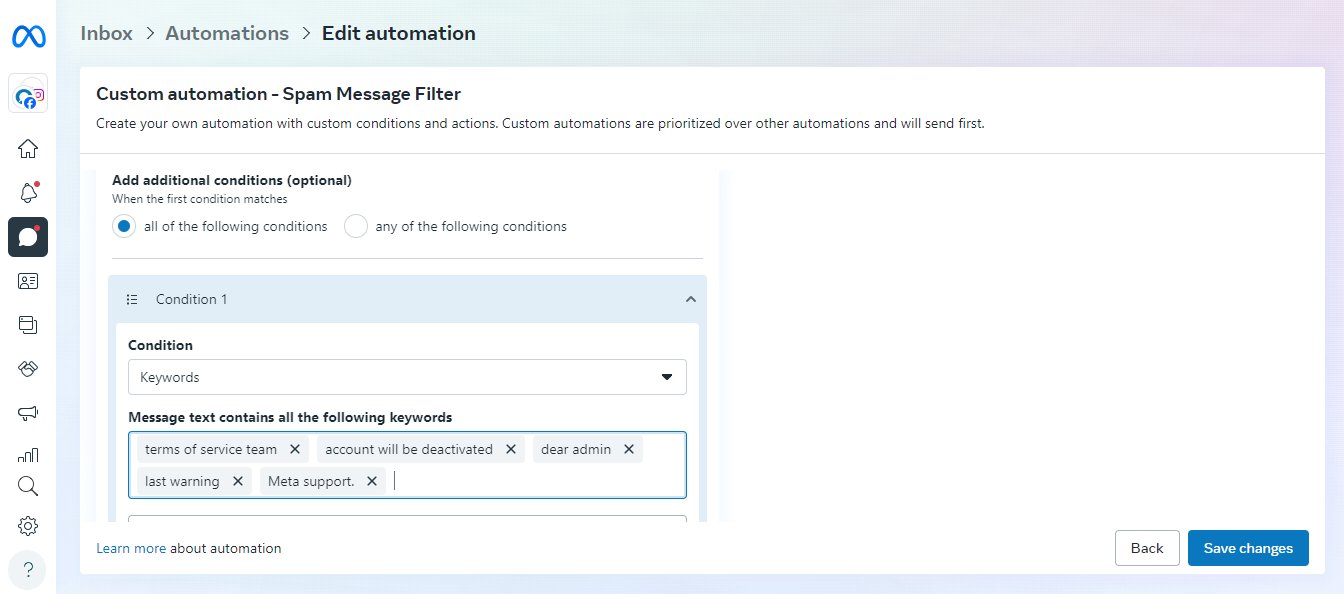
- Select "Mark as" for the action you want Meta to take on messages that include these keywords.
- Manage your thread by clicking "Move to spam."
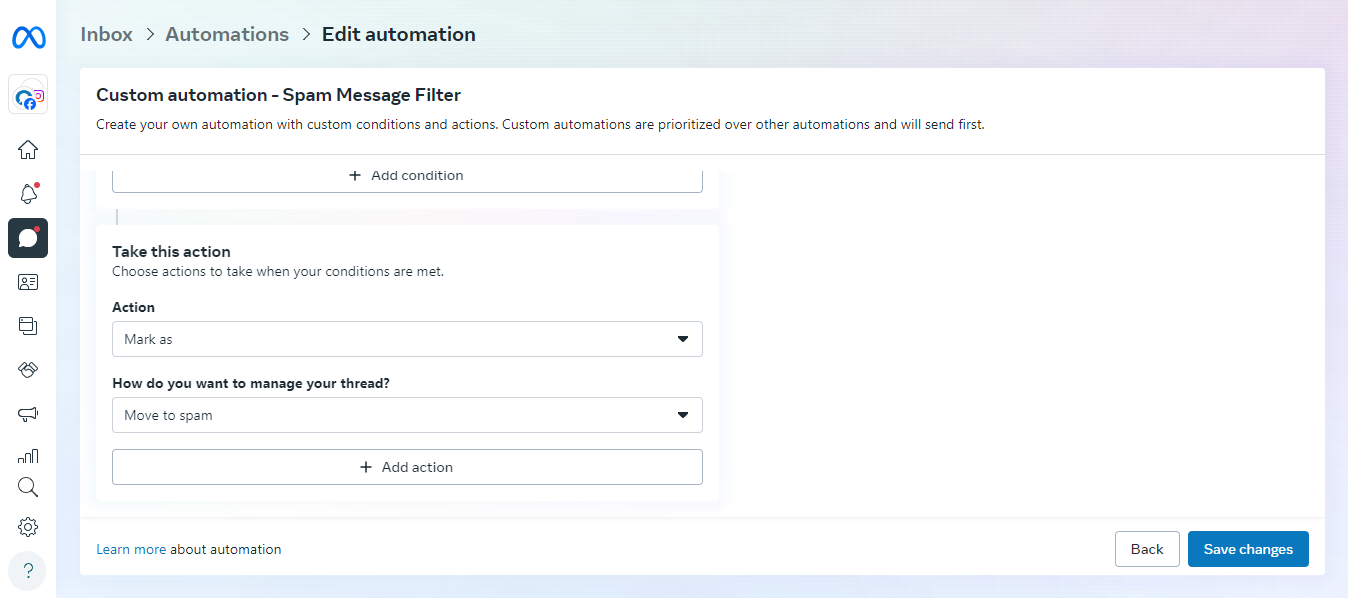
Make sure to save your changes, and you're all set! Messages containing the designated keywords will automatically go to your spam folder.
Unfortunately, other types of spam bots may affect your business. For example, email spam bots send emails that may contain a phishing attack, participate in email address harvesting, or simply clog your inbox. You can address these bots with similar strategies for automatically filtering spam messages.
Protect Your Business and Get More Out of Your Facebook Marketing
Facebook is a powerful marketing tool, but spam bots can get in the way. Address them as soon as possible to engage your target audience and improve your Facebook marketing strategy.
Struggling with Facebook marketing? Optimize is here to help. Our team of digital marketing experts can take your business's Facebook account to the next level by dealing with bots and implementing an effective social media marketing strategy.
If you would like to learn more about how Optimize can help you manage your Facebook account, schedule a free consultation today!
